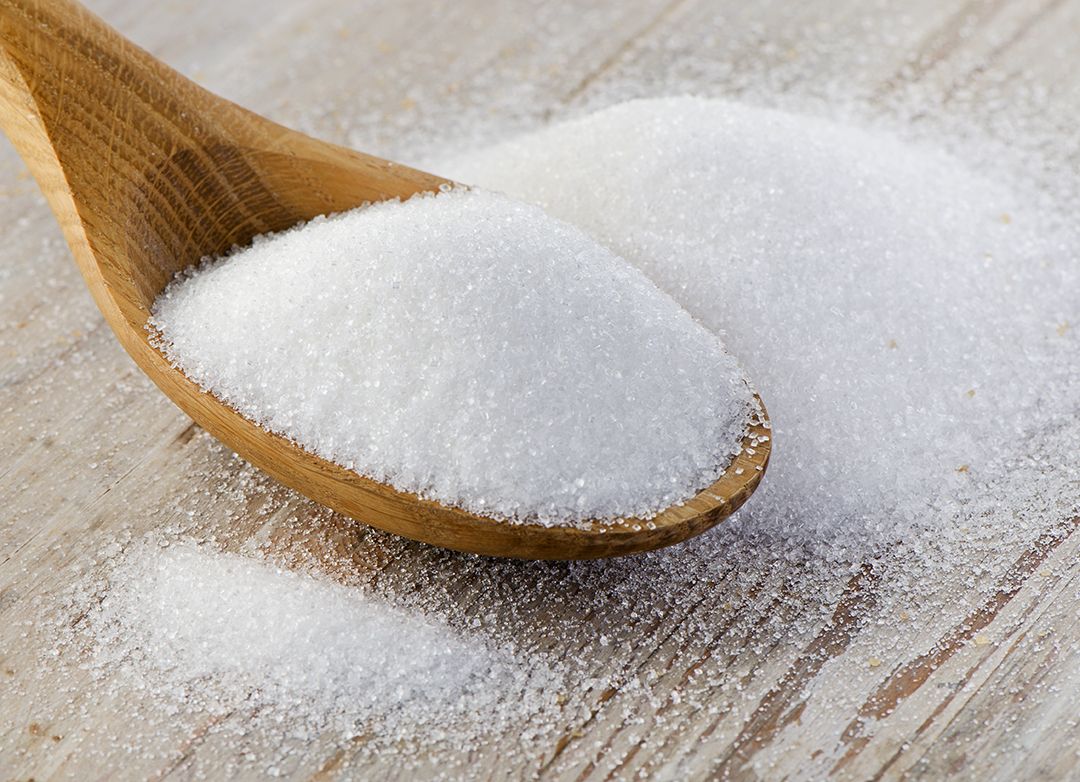 Allulose is a low-calorie sugar alternative that has a similar taste and texture to sucrose but with only 10% of the calories. It is considered a rare sugar because it is naturally found in small amounts in some fruits such as figs and raisins. Allulose sweetener has been approved by the FDA in the United States since 2019 and has been gaining popularity among consumers who are looking for healthier and natural options to reduce their sugar intake.
Allulose is a low-calorie sugar alternative that has a similar taste and texture to sucrose but with only 10% of the calories. It is considered a rare sugar because it is naturally found in small amounts in some fruits such as figs and raisins. Allulose sweetener has been approved by the FDA in the United States since 2019 and has been gaining popularity among consumers who are looking for healthier and natural options to reduce their sugar intake.
The global allulose sweetener market is expected to grow at a compound annual growth rate (CAGR) of 11.8% from 2023 to 2030. The market size was valued at USD 1.2 billion in 2022 and is projected to reach USD 3.1 billion by 2030. The major factors driving the market growth are:
- The increasing demand for low-calorie sweeteners due to rising health awareness among consumers, the growing prevalence of obesity and diabetes, and the favorable regulatory policies for allulose sweetener.
- The growing consumer preference for natural and plant-based ingredients over artificial sweeteners, as well as the clean label trend that requires transparency and simplicity in product labels.
- The technological advancements and innovations in the production and application of allulose sweetener, such as enzymatic conversion, fermentation, and blending with other natural sweeteners.
The global allulose sweetener market can be segmented by type, application, and region.
By Type
The market can be divided into two types: liquid allulose and powder allulose. Liquid allulose is more soluble and stable than powder allulose, and is suitable for beverages, dairy products, syrups, and sauces. Powder allulose is more convenient and versatile than liquid allulose, and is suitable for bakery products, confectionery, cereals, and snacks. The liquid allulose segment accounted for the largest market share in 2022, owing to its high demand in various applications. However, the powder allulose segment is expected to witness the fastest growth rate during the forecast period, due to its ease of use and storage.
By Application
The market can be categorized into several applications: beverages, dairy products, bakery products, confectionery, cereals, snacks, sauces, and others. Beverages include carbonated drinks, juices, sports drinks, energy drinks, tea, coffee, and alcoholic drinks. Dairy products include milk, yogurt, cheese, ice cream, and butter. Bakery products include breads, cakes, cookies, pies, pastries, muffins, and donuts. Confectionery includes chocolates, candies, gums, and mints. Cereals include breakfast cereals, granola bars, oatmeal, and porridge. Snacks include chips, crackers, popcorns, and nuts.
The beverages segment dominated the market in 2022, as allulose sweetener can enhance the flavor and mouthfeel of drinks without adding extra calories. The dairy products segment is also expected to grow significantly, as allulose sweetener can improve the texture and shelf life of dairy products. The bakery products segment is anticipated to show a high growth potential, as allulose sweetener can provide a similar browning and caramelization effect as sucrose, while reducing the glycemic index and calories.
By Region
The market can be analyzed by region: North America, Europe, Asia Pacific, Latin America, and Middle East and Africa. North America held the largest market share in 2022, due to the high consumer awareness and acceptance of allulose sweetener, as well as the supportive regulatory environment. Europe followed North America in terms of market share, as the European Union approved allulose sweetener as a novel food ingredient in 2021, opening new opportunities for the market expansion. Asia Pacific is expected to witness a significant growth rate in forthcoming years due to the growing usage of allulose in confectionery and bakery products in growing economies like India. Furthermore, the growing disposable income of the people is likely to further fuel the demand for premium and organic natural sugar products like allulose. Latin America and Middle East and Africa are also projected to exhibit a moderate growth rate, as the awareness and availability of allulose sweetener increase in these regions.
The organic allulose sweetener market is a promising and emerging segment of the global sweetener industry, as it offers a natural, low-calorie, and low-glycemic alternative to sugar. The market is driven by the increasing consumer demand for healthy and natural products, as well as the technological innovations and regulatory approvals for allulose sweetener. The market is expected to witness a robust growth in the coming years, as more applications and regions adopt allulose sweetener as a preferred sweetening solution.

